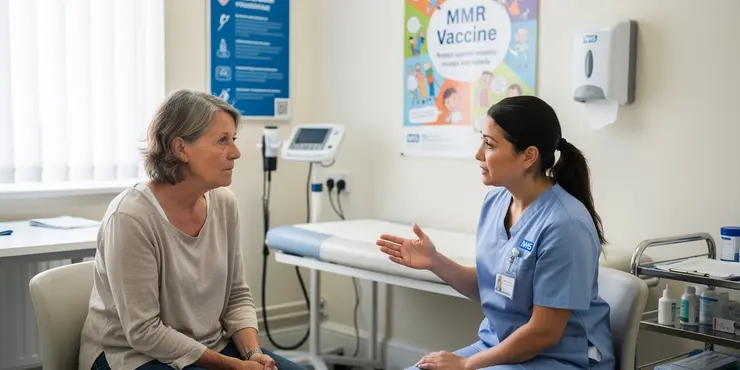
Find Help
More Items From Ergsy search
-
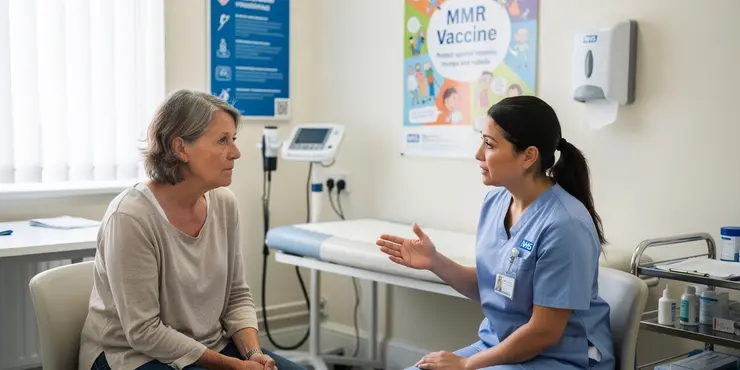
Can adults get measles?
Relevance: 100%
-
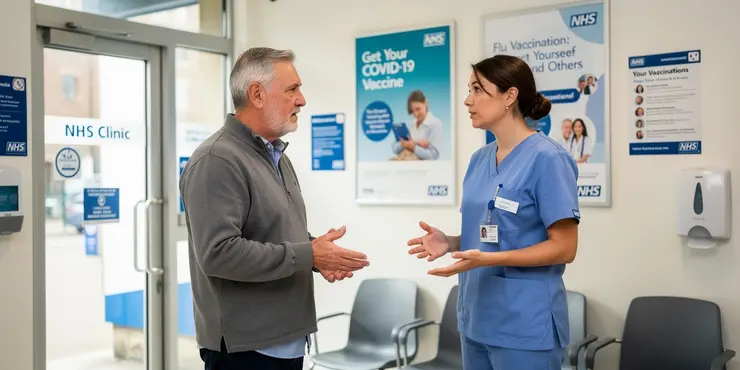
Are adults in the UK at risk from measles?
Relevance: 100%
-
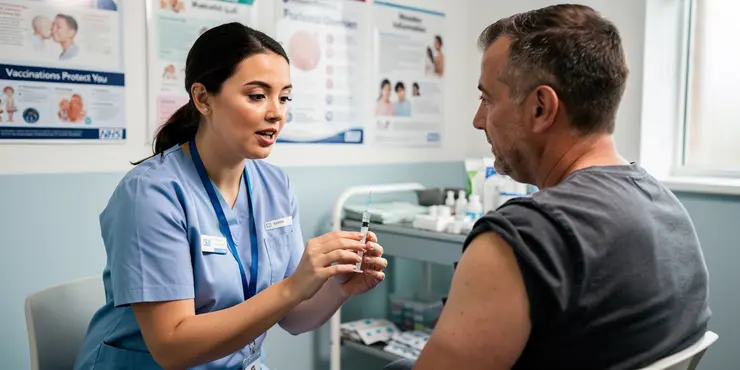
Can the measles vaccine be given to adults?
Relevance: 95%
-
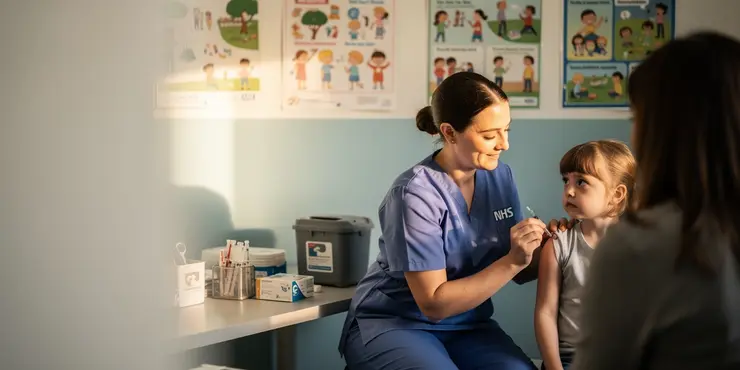
Measles
Relevance: 71%
-
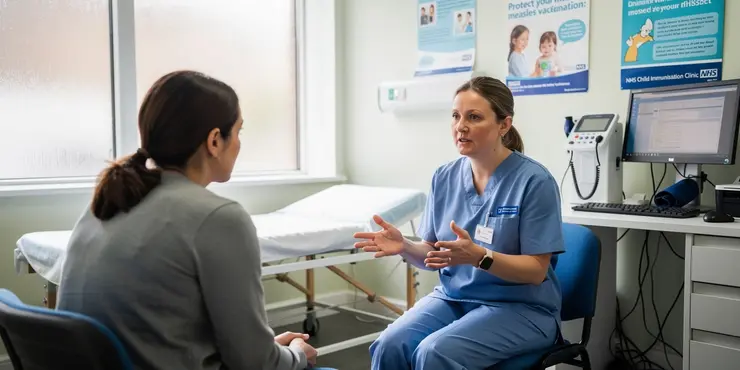
Can measles be serious?
Relevance: 69%
-
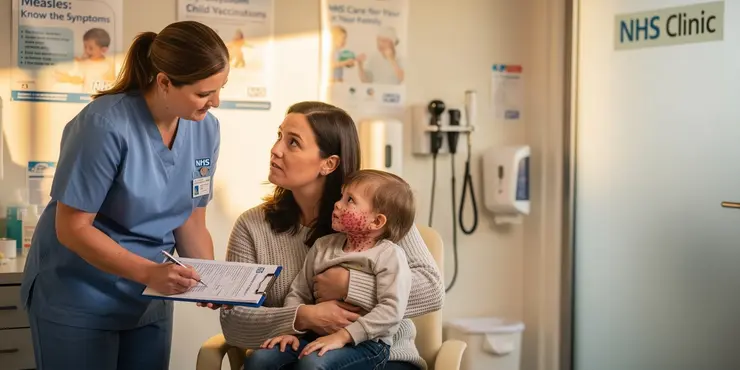
Can measles be treated?
Relevance: 68%
-
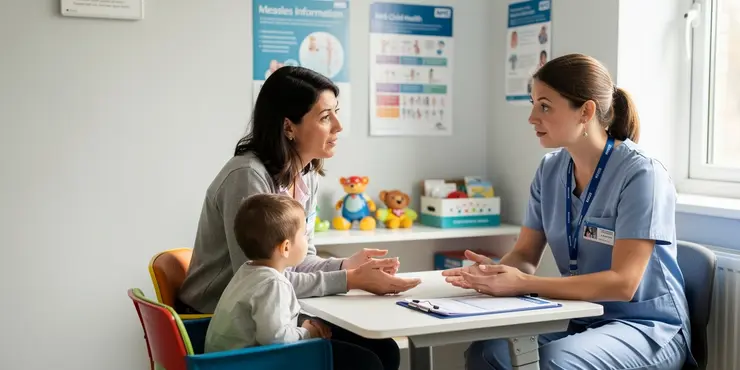
Is there a treatment for measles?
Relevance: 68%
-
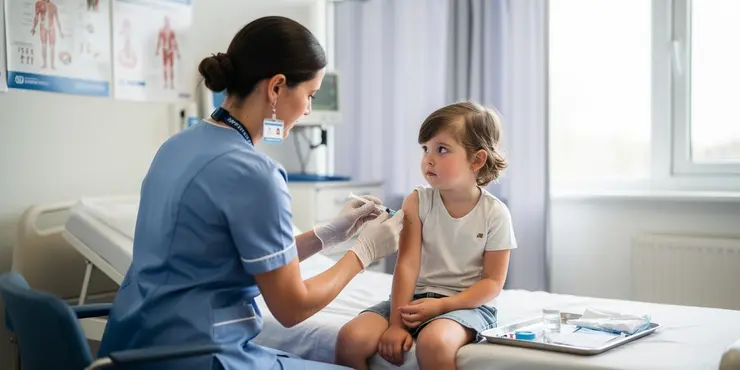
What is measles?
Relevance: 67%
-
Is there a treatment for measles?
Relevance: 67%
-
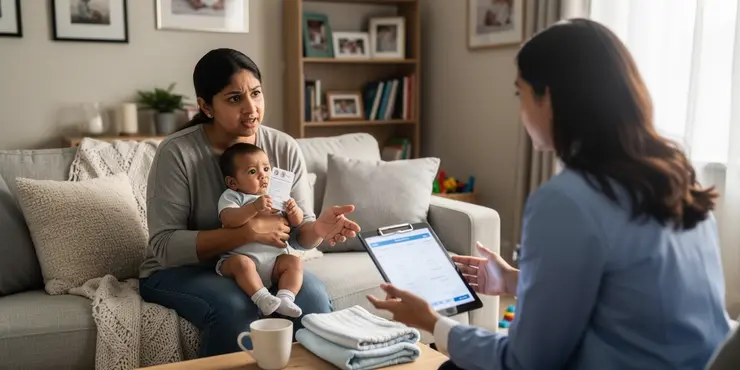
Who is most at risk from measles?
Relevance: 66%
-
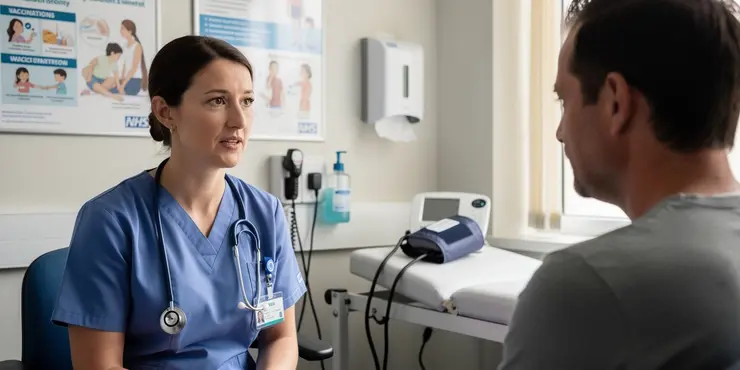
How is measles transmitted?
Relevance: 65%
-
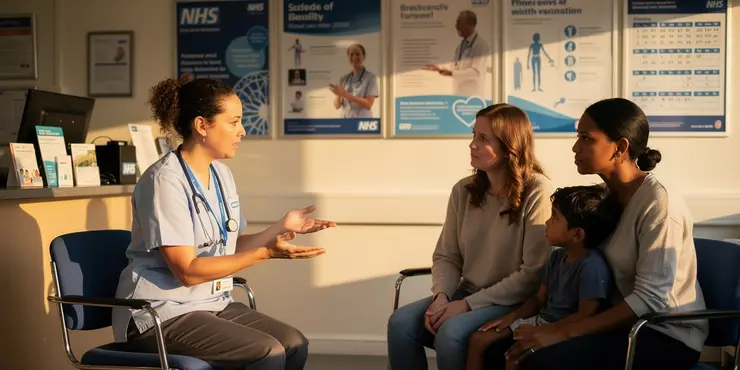
How long is a person with measles contagious?
Relevance: 65%
-
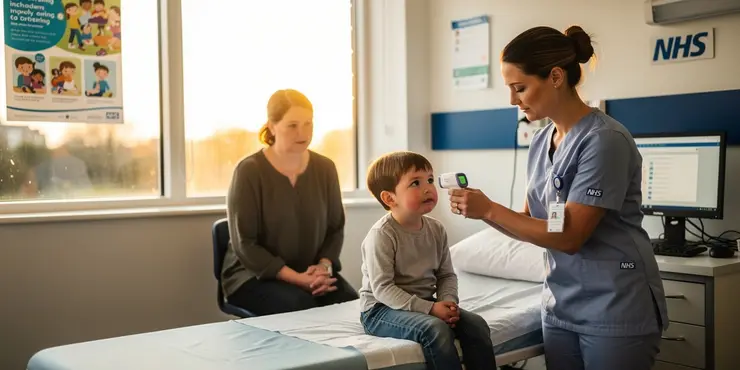
What are the symptoms of measles?
Relevance: 65%
-
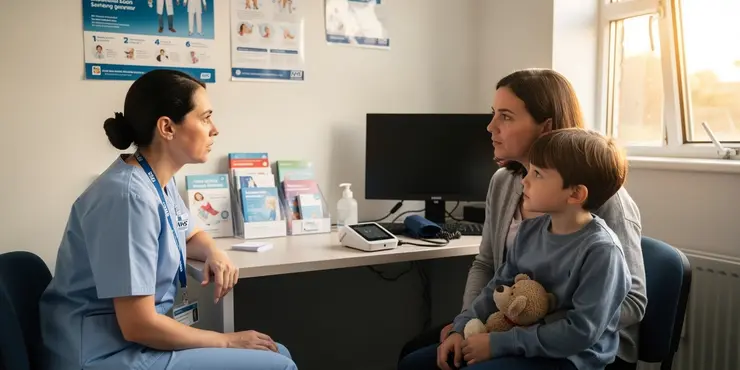
Are measles outbreaks common in the UK?
Relevance: 64%
-
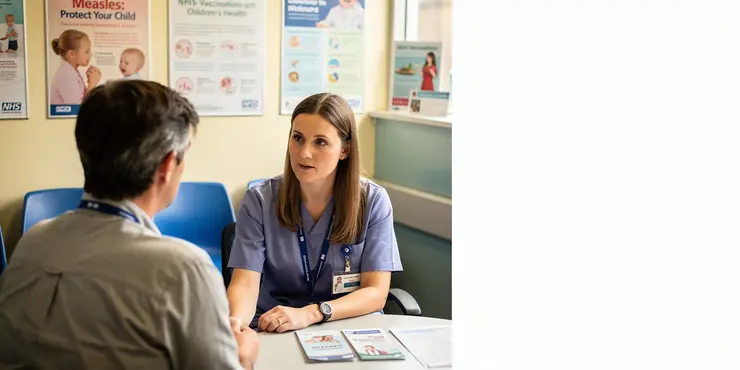
How is measles transmitted?
Relevance: 64%
-
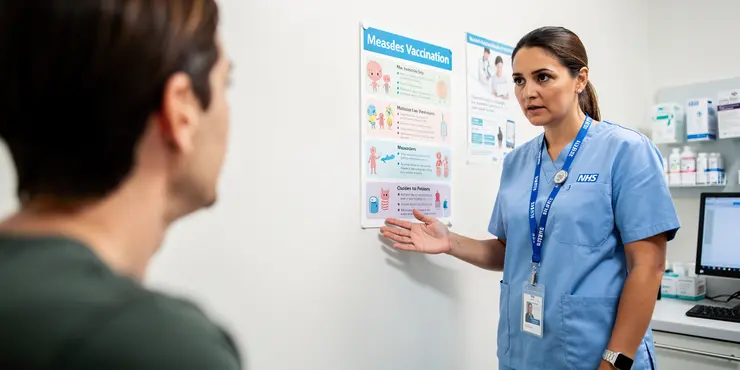
Are measles more common outside of the UK?
Relevance: 64%
-
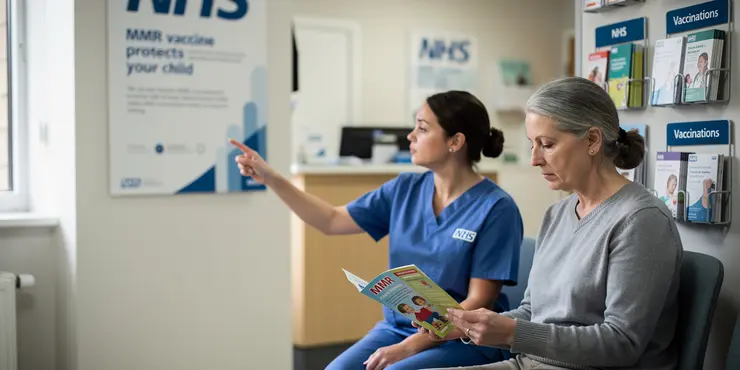
Are measles cases rising in the UK?
Relevance: 64%
-
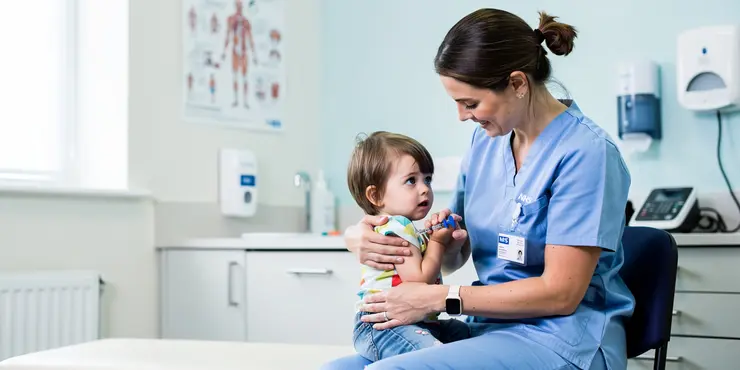
Can measles cause complications?
Relevance: 64%
-
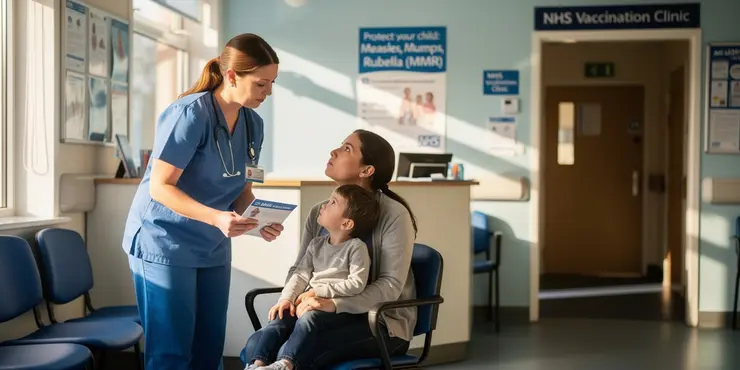
Are measles cases currently rising in the UK?
Relevance: 63%
-
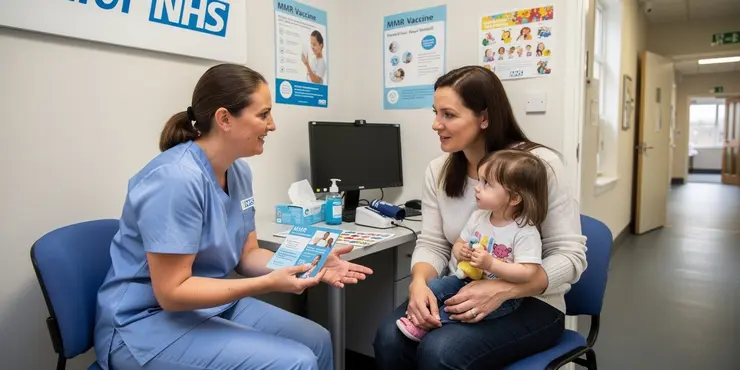
How can measles outbreaks be prevented?
Relevance: 63%
-
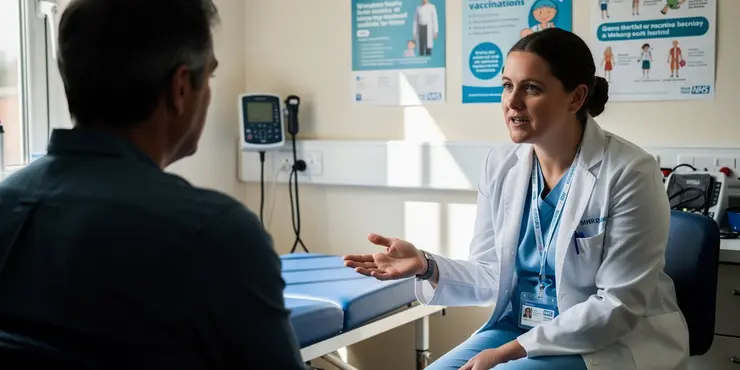
Can adults receive the MMR vaccine?
Relevance: 61%
-
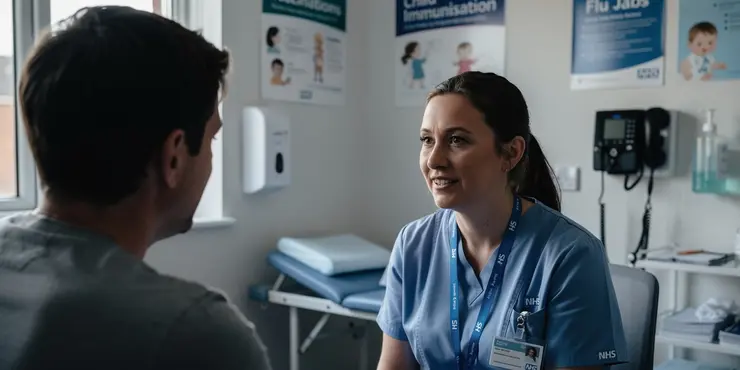
Why is measles less common in the UK?
Relevance: 61%
-
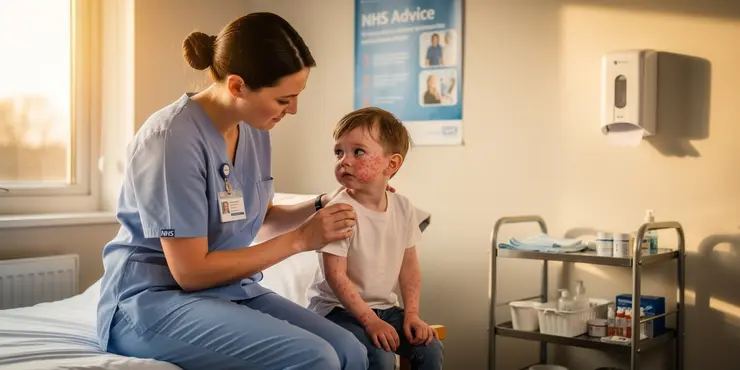
What are the symptoms of measles?
Relevance: 61%
-
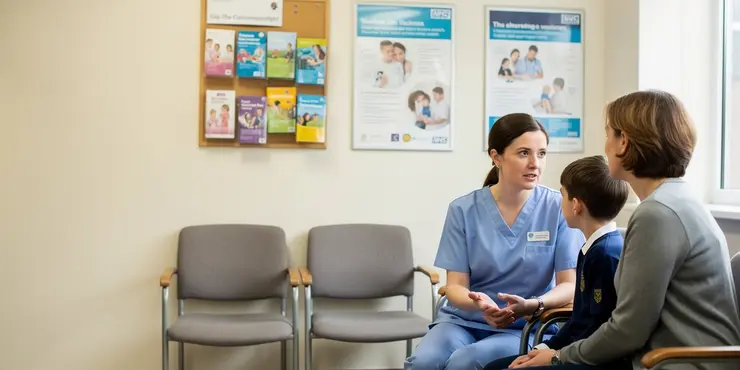
How can measles be prevented?
Relevance: 61%
-
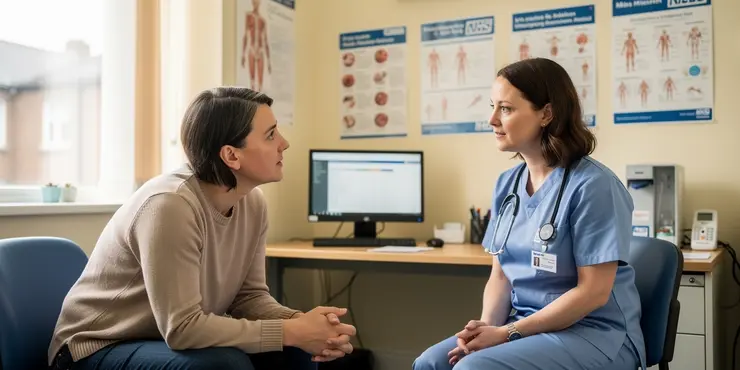
What should I do if I suspect I have measles?
Relevance: 60%
-

Why are measles outbreaks still occurring?
Relevance: 60%
-
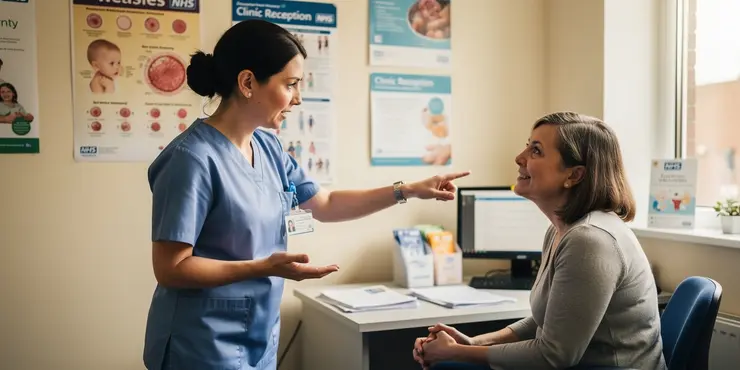
What are the symptoms of measles?
Relevance: 60%
-
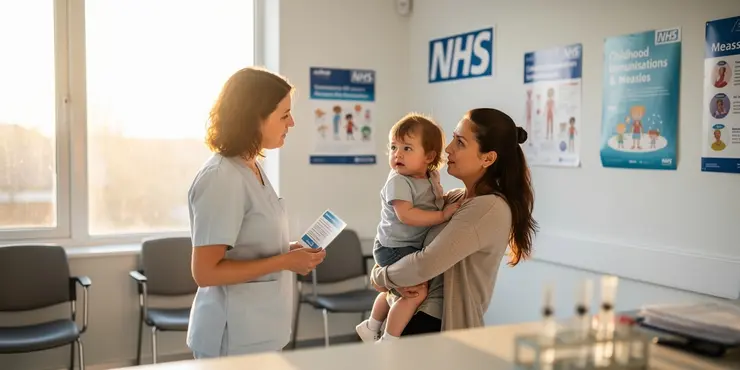
How contagious is measles?
Relevance: 60%
-
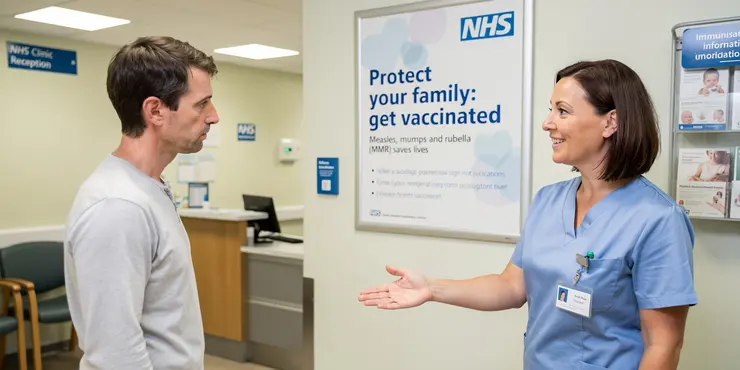
What is causing the rise in measles cases in the UK?
Relevance: 59%
-
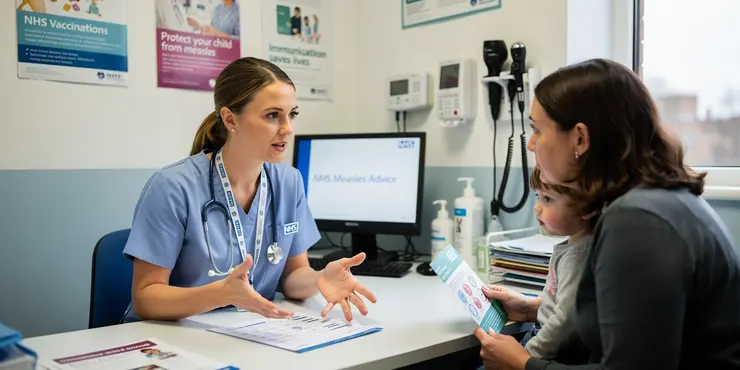
How is measles spread?
Relevance: 59%
-
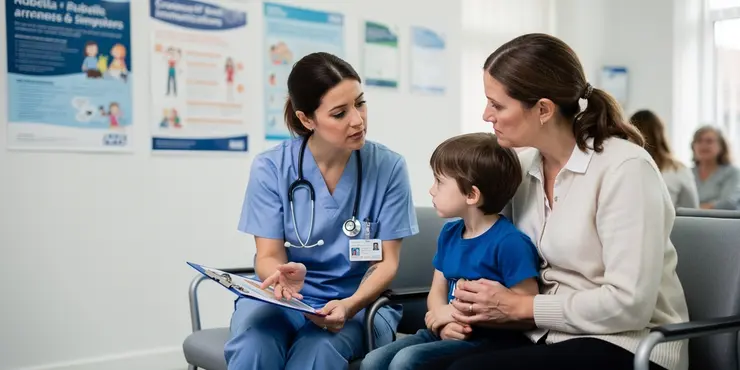
Is Rubella the same as measles?
Relevance: 59%
-
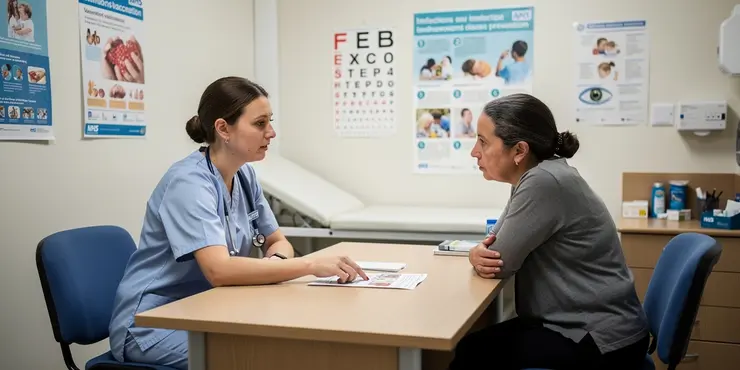
What should you do during a measles outbreak?
Relevance: 59%
-
What should you do if you suspect you have measles?
Relevance: 59%
-
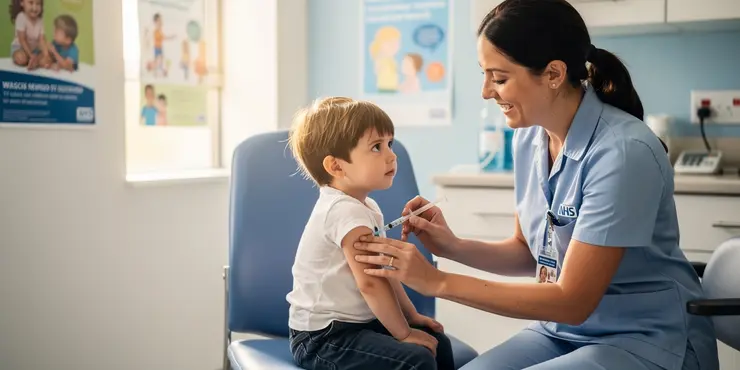
What is the current measles vaccination coverage in the UK?
Relevance: 59%
-
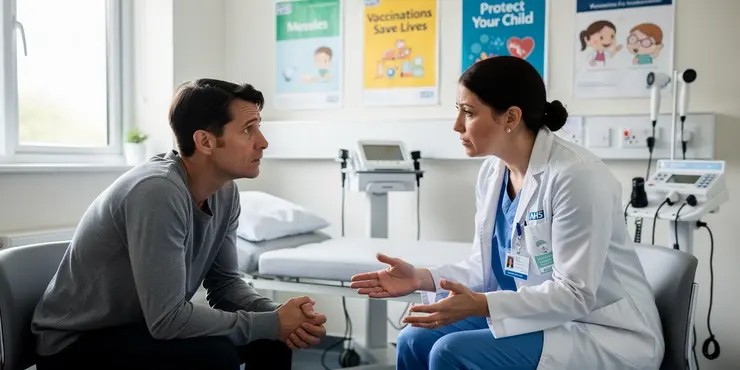
What complications can arise from measles?
Relevance: 58%
-
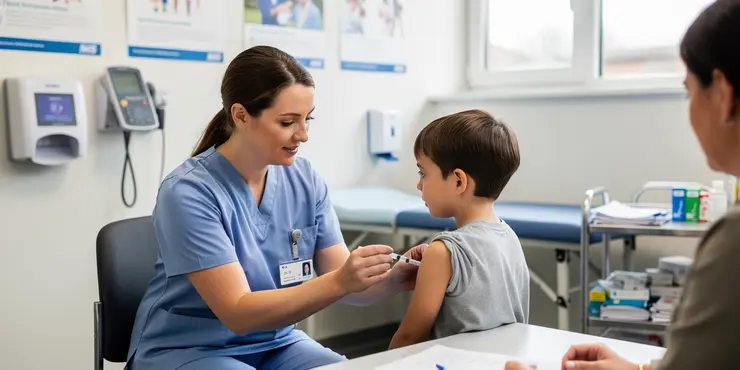
Can you get measles more than once?
Relevance: 57%
-
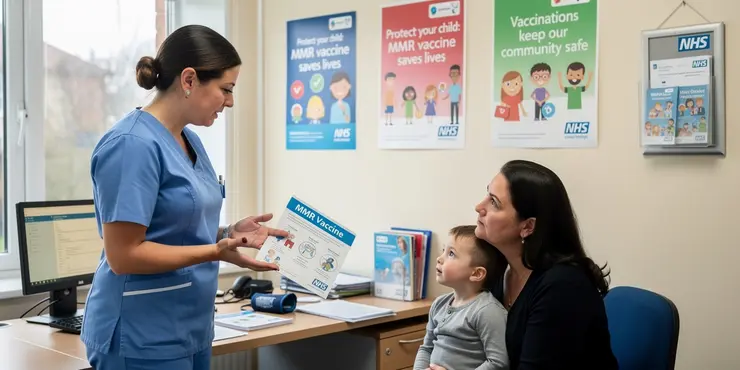
Why has the UK lost its measles elimination status?
Relevance: 56%
-
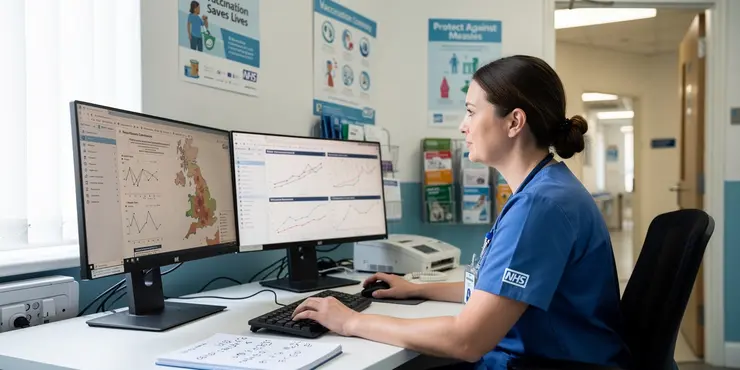
How does the UK monitor measles outbreaks?
Relevance: 55%
-
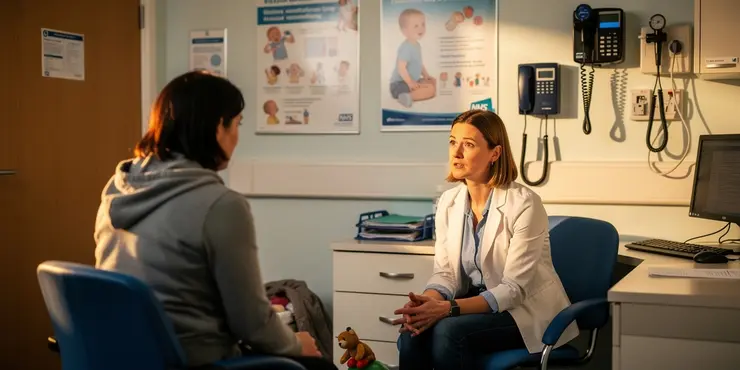
What should you do if you suspect you have measles?
Relevance: 55%
-
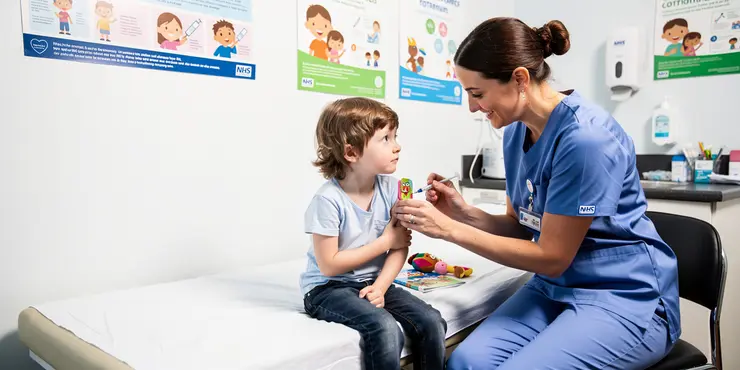
Which countries have higher rates of measles?
Relevance: 54%
Can Adults Get Measles?
Measles is a highly contagious viral infection that primarily affects children, but adults are also susceptible. Understanding the risk factors, prevention methods, symptoms, and treatment options can help mitigate this risk.
Understanding Measles in Adults
While measles has become less common in the UK due to successful vaccination programs, adults who have not been vaccinated or have not been previously exposed can still contract the disease. Measles spreads through respiratory droplets and is highly contagious, making it crucial for adults to ensure they have adequate immunity.
Symptoms and Complications
The symptoms of measles are generally similar in adults and children, beginning with fever, cough, runny nose, and conjunctivitis. These symptoms are followed by a characteristic rash that starts on the face and spreads downward. Adults, however, can experience more severe complications, such as pneumonia, encephalitis, and in rarer cases, death.
Vaccination and Immunity
The best protection against measles is the MMR (measles, mumps, and rubella) vaccine. The NHS recommends that anyone who has not received two doses of the MMR vaccine get vaccinated. Adults born before 1970 often have natural immunity due to widespread exposure during childhood, but those born later need to ensure vaccination coverage. Pregnant women and immunocompromised individuals should consult their healthcare providers for appropriate advice.
Treatment and Management
There is no specific antiviral treatment for measles. Management primarily involves supportive care, such as hydration, fever control, and monitoring for complications. Vitamin A supplements are sometimes recommended, as they have been shown to reduce the severity in children and might be beneficial for adults as well. It is crucial for individuals with measles to remain isolated to prevent further spread.
Public Health Implications
In the UK, public health efforts focus on maintaining high vaccination coverage to prevent outbreaks. Adults can obtain the MMR vaccine through their GP practice. Staying informed about potential exposure, especially when traveling abroad, and seeking prompt medical advice if symptoms develop can help prevent the spread of measles and protect vulnerable populations.
Can Adults Get Measles?
Measles is a virus that spreads easily. It mostly affects children, but adults can get it too. Knowing how to stay safe and what to do if you get sick can help.
Understanding Measles in Adults
Measles is not as common in the UK now because people get vaccinated. But adults who did not get the vaccine or have not had measles can still get it. Measles spreads through coughs and sneezes, so it’s important for adults to make sure they are protected.
Symptoms and Complications
Measles symptoms are the same for everyone. You might get a fever, cough, runny nose, and sore eyes. Then, a bumpy rash starts on your face and spreads. Adults can get sicker than kids, with problems like lung infections or brain swelling.
Vaccination and Immunity
The MMR vaccine stops measles. The NHS says to get two MMR shots if you didn’t before. People born before 1970 might already be safe because they had measles as kids. If you are pregnant or have a weak immune system, talk to your doctor about what to do.
Treatment and Management
There is no special medicine to treat measles. You can drink lots of water, take medicine for fever, and rest. Sometimes, vitamin A helps make measles less serious. It's very important to stay away from others if you have measles, so you don't spread it.
Public Health Importance
In the UK, keeping people vaccinated stops measles from spreading. You can get the MMR vaccine at your doctor's office. Be careful about getting measles, especially if you travel. See a doctor if you get sick, so you don't pass it to others.
Frequently Asked Questions
Can adults get measles?
Yes, adults can get measles if they have not been vaccinated or have not had the disease before.
What are the symptoms of measles in adults?
Symptoms of measles in adults include high fever, cough, runny nose, red eyes, and a distinctive red rash.
Is measles more severe in adults than in children?
Measles can be more severe in adults, sometimes leading to complications such as pneumonia and encephalitis.
How is measles spread among adults?
Measles is highly contagious and spreads through respiratory droplets when an infected person coughs or sneezes.
Can an adult be immune to measles?
An adult can be immune if they received two doses of the MMR vaccine or had measles as a child.
What should an adult do if they suspect they have measles?
They should contact their GP and avoid public places to prevent spreading the virus.
How effective is the measles vaccine for adults?
The MMR vaccine is about 97% effective at preventing measles when both doses are received.
Can adults receive the MMR vaccine during an outbreak?
Yes, adults can receive the MMR vaccine during an outbreak, particularly if they lack immunity.
Do adults need a booster dose of the MMR vaccine?
Adults typically do not need a booster if they've had two doses, unless advised otherwise by a doctor.
What complications can arise from measles in adults?
Complications can include ear infections, bronchitis, and more serious issues like encephalitis and pneumonia.
Are pregnant women at risk from measles?
Pregnant women are at higher risk of complications and should consult their healthcare provider immediately if exposed.
Is there a treatment for measles in adults?
There is no specific antiviral treatment for measles, but supportive care can help relieve symptoms.
Can adults who had measles before get it again?
It is extremely rare to get measles again, as having had the disease usually provides lifelong immunity.
What if an adult cannot remember their vaccination status?
They can check with their GP or receive the MMR vaccine as it is safe for those who are already immune.
How long is an adult with measles contagious?
An adult with measles is contagious from about four days before to four days after the rash appears.
Can grown-ups get measles?
Yes, grown-ups can get measles.
Measles is caused by a virus. It makes you feel very sick, and you get a red rash.
Here are some helpful tips if you're worried about measles:
- Check with your doctor. They can give you the right advice.
- Get a vaccine to stop measles. Vaccines are like a shield. They help protect you.
- Wash your hands often. This helps stop germs from spreading.
If you feel worried, tell someone you trust. They can help you feel better.
Yes, grown-ups can get measles if they did not get the vaccine or did not have measles before.
What signs show measles in grown-ups?
Measles can make you feel sick. Here are some signs to look for in grown-ups:
- High fever – you feel very hot
- Cough – you might cough a lot
- Runny nose – your nose may drip
- Red eyes – your eyes can look red and be sore
- Rash – you might get red spots on your skin
If you think you have measles, tell a doctor or health worker. They can help you feel better.
Tools like picture charts can help you understand the signs. You can also ask someone to read this to you.
If grown-ups get measles, they can get a very high fever. They might also start coughing. Their nose may be runny, like when you have a cold. Their eyes can turn red. They will get a red rash that looks a certain way.
Is measles worse for grown-ups than for kids?
Measles is not fun for anyone. But, it can be worse if you are a grown-up.
Here are some things to know:
- Kids usually get better faster.
- Grown-ups might get sicker for longer.
- Grown-ups can have more serious health problems with measles.
Remember:
If you or someone you know has measles, it is important to see a doctor.
For help, you can use things like:
- Talking to someone you trust about it.
- Asking a doctor or nurse for advice.
Measles is a sickness that can be worse for grown-ups than for kids. Sometimes, it makes grown-ups really sick. They might get lung infections called pneumonia, or their brain might get swollen, which is called encephalitis. If you find this hard to read, using pictures or asking someone to read with you can help.
How do grown-ups catch measles?
Measles is a disease that spreads very easily. When a person with measles coughs or sneezes, tiny drops in the air can make other people sick too.
Can grown-ups be protected from getting measles?
An adult is safe from measles if they got two MMR shots or had measles when they were a child.
What to do if you think you have measles
They should call their doctor. Stay away from places with lots of people to stop the virus from spreading.
How well does the measles vaccine work for grown-ups?
The measles vaccine is a shot that helps keep you safe from getting measles. It works really well for most people.
Grown-ups who get the vaccine usually don't get measles. This means the vaccine is very good at protecting you!
If you have questions or need extra help understanding, ask a doctor or a nurse. They can explain more about the vaccine.
The MMR vaccine helps stop you from getting measles. When you get both doses of the vaccine, it works 97% of the time.
Can grown-ups get the MMR vaccine when more people are getting sick?
Yes, grown-ups can get the MMR vaccine to stay healthy when lots of people are getting sick.
If you have not had the MMR vaccine before, it is a good idea to talk to a doctor or nurse about getting it.
They can help you decide if the vaccine is right for you.
Using pictures or videos can help explain how the vaccine works.
Family, friends, or support workers can also help you understand this information better.
Yes, grown-ups can get the MMR shot when there is a disease outbreak, especially if they are not protected.
Do grown-ups need another MMR vaccine shot?
MMR is a vaccine that helps protect us from measles, mumps, and rubella. Sometimes, grown-ups might need another MMR shot to stay safe from these illnesses.
If you are not sure, you can:
- Ask a doctor for advice.
- Check your health records to see if you need another shot.
These steps can help you know if you need more protection.
Most grown-ups do not need another shot if they have already had two. But if a doctor says you need one, then you should get it.
What problems can measles cause for adults?
Measles can make adults very sick. Here are some problems they might face:
- Strong coughing and sore throat.
- High fever that doesn’t go away.
- Bad ear infections which can hurt a lot.
- Breathing problems like pneumonia.
- Swelling in the brain (called encephalitis), which can be very serious.
If you or someone you know has measles, it’s important to see a doctor.
You can use tools like:
- Audio books or read-aloud apps to help understand the information better.
- Simple diagrams or pictures to show what happens when someone has measles.
These can make it easier to learn about measles.
Problems can happen if you get sick. You might get an ear infection or a cough. Sometimes, you can get more serious problems like brain swelling or lung infection.
Can measles harm pregnant women?
Measles can be dangerous for women who are going to have a baby. It is important to know how to stay safe. Here are some things that can help:
- Talk to your doctor about getting a vaccine before you get pregnant.
- If you feel sick, tell your doctor right away.
- Wash your hands often to stay clean and healthy.
- Avoid people who are sick with measles.
If you have more questions, ask a grown-up or a doctor for help.
If you are pregnant, you could have more problems if you get sick. Talk to your doctor or nurse right away if you think you might have been around someone who's sick.
Can grown-ups get help if they have measles?
If a grown-up has measles, there are ways to help them feel better.
Doctors might suggest taking medicine to make a fever go down.
Getting lots of rest and drinking plenty of water can also help.
Grown-ups should see a doctor if they think they have measles.
Talking to a doctor is the best way to get help.
Friends or family can help by taking them to the doctor.
There is no special medicine that stops measles, but there are ways to feel better.
Can grown-ups get measles again if they had it before?
If a grown-up had measles before, they usually won't get it again. Their body learns to fight it off. This is called being "immune." Some people might not remember if they had measles or not.
To feel safe, people can get a shot called a vaccine. This helps keep them safe from measles.
Here are some tips:
- Talk to a doctor if you're not sure about measles.
- Look at pictures of measles, so you know what it looks like.
- Use simple charts to understand how vaccines work.
It is very rare to get measles again. Once you have had measles, you usually cannot get it again for the rest of your life.
To help you understand better, you can look at diagrams or watch videos about immunity. You can also ask a teacher or a parent to explain more.
What if an adult cannot remember if they got their vaccines?
If someone cannot remember their vaccines, they can:
- Ask their doctor to check their records.
- Look for old vaccination cards or records at home.
- See if their school or old jobs have vaccine records.
Tools and tips that can help:
- Keep a health diary to write down vaccine dates.
- Set reminders on a phone for vaccines.
- Use a calendar to keep track of health appointments.
They can ask their doctor to check. They can also get the MMR shot. It is safe even if they do not need it.
How long can a grown-up with measles spread it to others?
A grown-up with measles can spread it to others from about four days before the rash shows up until about four days after.
Useful Links
This website offers general information and is not a substitute for professional advice.
Always seek guidance from qualified professionals.
If you have any medical concerns or need urgent help, contact a healthcare professional or emergency services immediately.
Some of this content was generated with AI assistance. We’ve done our best to keep it accurate, helpful, and human-friendly.
- Ergsy carfully checks the information in the videos we provide here.
- Videos shown by Youtube after a video has completed, have NOT been reviewed by ERGSY.
- To view, click the arrow in centre of video.
- Most of the videos you find here will have subtitles and/or closed captions available.
- You may need to turn these on, and choose your preferred language.
- Go to the video you'd like to watch.
- If closed captions (CC) are available, settings will be visible on the bottom right of the video player.
- To turn on Captions, click settings .
- To turn off Captions, click settings again.
More Items From Ergsy search
-

Can adults get measles?
Relevance: 100%
-

Are adults in the UK at risk from measles?
Relevance: 100%
-

Can the measles vaccine be given to adults?
Relevance: 95%
-

Measles
Relevance: 71%
-

Can measles be serious?
Relevance: 69%
-

Can measles be treated?
Relevance: 68%
-

Is there a treatment for measles?
Relevance: 68%
-

What is measles?
Relevance: 67%
-
Is there a treatment for measles?
Relevance: 67%
-

Who is most at risk from measles?
Relevance: 66%
-

How is measles transmitted?
Relevance: 65%
-

How long is a person with measles contagious?
Relevance: 65%
-

What are the symptoms of measles?
Relevance: 65%
-

Are measles outbreaks common in the UK?
Relevance: 64%
-

How is measles transmitted?
Relevance: 64%
-

Are measles more common outside of the UK?
Relevance: 64%
-

Are measles cases rising in the UK?
Relevance: 64%
-

Can measles cause complications?
Relevance: 64%
-

Are measles cases currently rising in the UK?
Relevance: 63%
-

How can measles outbreaks be prevented?
Relevance: 63%
-

Can adults receive the MMR vaccine?
Relevance: 61%
-

Why is measles less common in the UK?
Relevance: 61%
-

What are the symptoms of measles?
Relevance: 61%
-

How can measles be prevented?
Relevance: 61%
-

What should I do if I suspect I have measles?
Relevance: 60%
-

Why are measles outbreaks still occurring?
Relevance: 60%
-

What are the symptoms of measles?
Relevance: 60%
-

How contagious is measles?
Relevance: 60%
-

What is causing the rise in measles cases in the UK?
Relevance: 59%
-

How is measles spread?
Relevance: 59%
-

Is Rubella the same as measles?
Relevance: 59%
-

What should you do during a measles outbreak?
Relevance: 59%
-
What should you do if you suspect you have measles?
Relevance: 59%
-

What is the current measles vaccination coverage in the UK?
Relevance: 59%
-

What complications can arise from measles?
Relevance: 58%
-

Can you get measles more than once?
Relevance: 57%
-

Why has the UK lost its measles elimination status?
Relevance: 56%
-

How does the UK monitor measles outbreaks?
Relevance: 55%
-

What should you do if you suspect you have measles?
Relevance: 55%
-

Which countries have higher rates of measles?
Relevance: 54%


